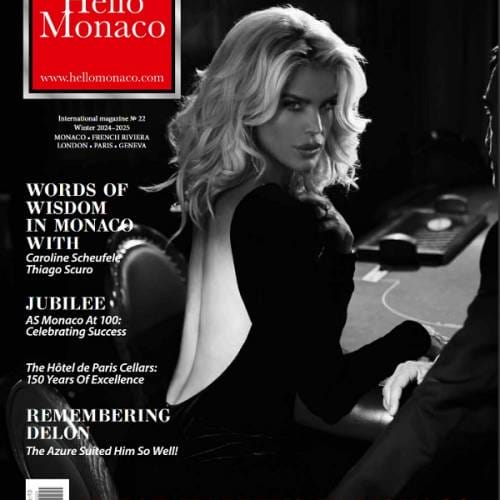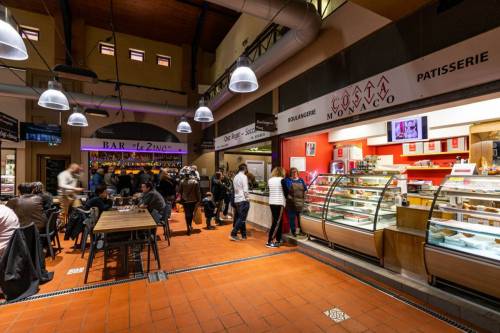The banking world is experiencing a profound metamorphosis. The requirement of transparency is omnipresent, reputation will be essential from now on. If transparency has become the key word in terms of communication, the banking world has been very discreet in the past. Branches shutting-down, mergering and restructuring, laying-offs. In the quiet little world of banks, silence was golden. The sector is made up of some thirty institutions, representing 4.1 billion euros of mutual funds. But if we are always talking about “strategic development” and justifying repurchases from one bank to another, the institutions that close are sometimes in the turmoil of business troubles.
For example, EFG lnternational took over BSl- who was entangled in the Petrobras scandal – and announced, on the1st of November, its acquisition for a preliminary purchase price of nearly one billion euros. Last March, it was J. Safra Sarasin who signed a repurchase agreement with Crédit Suisse. However, the image of Credit Suisse Monaco suffered in recent weeks with its detention, at the end of the summer, for breach of trust, from one of the managers.
On the 19th of November, CFM wealth management canceled the signing of an agreement to take over HSBC’s customers. It would’ve been a development opportunity for the renowned CFM. HSBC was implicated along with its largest business client, Dmitri Rybolovlev, in the Panama papers scandal. Audi bank, which, for twenty months (between June 2011 and March 2013) was located at 24 Boulevard des Moulins, was transformed into a management company – twenty-one employees lost their jobs during the transfer. In 2013, UBP took over Lloyds. With each repurchase or agreement, there are more and more questions being raised.
The Monegasque banking sector must therefore respond to the ever-increasing demands for transparency, follow the strategies of major international groups that are focused on concentration in large financial groups and face small and large legal cases that still taint their image. At the bottom of the ladder, it is also the employees who find themselves forced, in this great upheaval, to seek work elsewhere. In an international landscape where it is a matter of being “compliant”, the oldest, strongest and scandal-free establishments are the ones that manage to stand out.

Jean Castellini, who was the President of general management for three years at the bank J. Safra (Monaco), knows all about the banking sector and the upheavals it is currently facing in Monaco. A government advisor for the Ministry of Finance and Economy since 2013, he gives an optimistic picture for the future of the sector.
– Why have there been so many closures in such a short time?
– There are as many reasons as there are questions. Monaco suffers the consequences of international strategies because the country is essentially a city of private banks. It is therefore not a question, on the part of major financial groups, to take a decision against the Monegasque place.
– In this case, what does the future hold for Monaco?
– This should lead us to think about two things: On the one hand, the trend is towards “on-shorisation”. From Monaco, banks will have to offer their resident customers the full range of services from major groups. For example, since the agreement he has signed with HSBC, the CFM will be able to offer investment, corporate banking, etc. That should be the trend now if banks want to grow.
– Monaco has become a more “transparent” place. Is that a problem for bankers?
– Not at all. It is exactly the opposite. It is a trend which responds to customer demand. But it is clear that the bankers are making a profound change in their profession and their activity.
This desire for transparency is not new. Would the banks have been able to anticipate this evolution to avoid closure? It is not because there is more transparency that they closed. There are other very strong pressures. Interest rates are very low. Macroeconomic conditions affect institutions. I prefer to say to myself that in Monaco, we will have an institution like the CFM, which will still be able to develop and be able to absorb higher costs, rather than small establishments which may be less solid. Concentration is key in this line of work.
– Monaco has one of the largest concentrations of wealth in the world. But the banks do not seem to attract the capital of the wealthy and resident clientele. Is that a problem of regulation, professionalism, or professional secrecy?
– I think that what can be strengthened in the years to come are the skills available to clients. Service is the real challenge. Nothing prevents today’s banks from achieving this. We will see a positive snowball effect. It is because we will be able to offer services, that customers will consider that the place more interesting. Newcomers do not necessarily realize it today. Several banks can offer a wide range of offers in Monaco and customers can be served just as well, if not better than in other places.
– Are the skills in place to do this?
– In a market that is destined for residents, it is crucial that the people who have chosen Monaco are persuaded and convinced that they can get all the services from Monaco. Yes, banks have the skills. It’s complicated for a customer to change. There must be a good reason for doing so. Sometimes proximity plays a role. This is probably the key to the shift from $110 billion to $ 300 billion. It can be done fairly easily economically. It is up to banks to prove they are up to par.
Managing Director of Barclays – Wealth and Investment Management EMEA and Monaco, Francesco Grosoli, has seen banking evolve. Incarnating both local life and British culture, he conceived of his activity as a close relationship between his client, the bank and Monaco.
– Are the good days of bankers in the past?
– Monegasque banking remains attractive. It is our profession to continue to strive for excellence in service. We offer private parking to customers. Barclays’ attachment to the Principality is regularly reaffirmed.
– Do you mean that Monaco is helping to perpetuate the history of Barclays?
– Our history with this country has lasted nearly a century. Our commitment to continue to provide financial services and grow our business in Monaco has not diminished.
– No one is immortal. What about the future?
– Of course, no one can prevent rumours. However, I can say that Barclays will continue its efforts to develop its capabilities. We have a team of high level professionals who concentrate on providing our clients with innovative solutions and outsourcing, targeted to their financial needs. Our business is to maintain long-term relationships with our clients and their families and to provide solutions, whatever the complexity of the demand.








